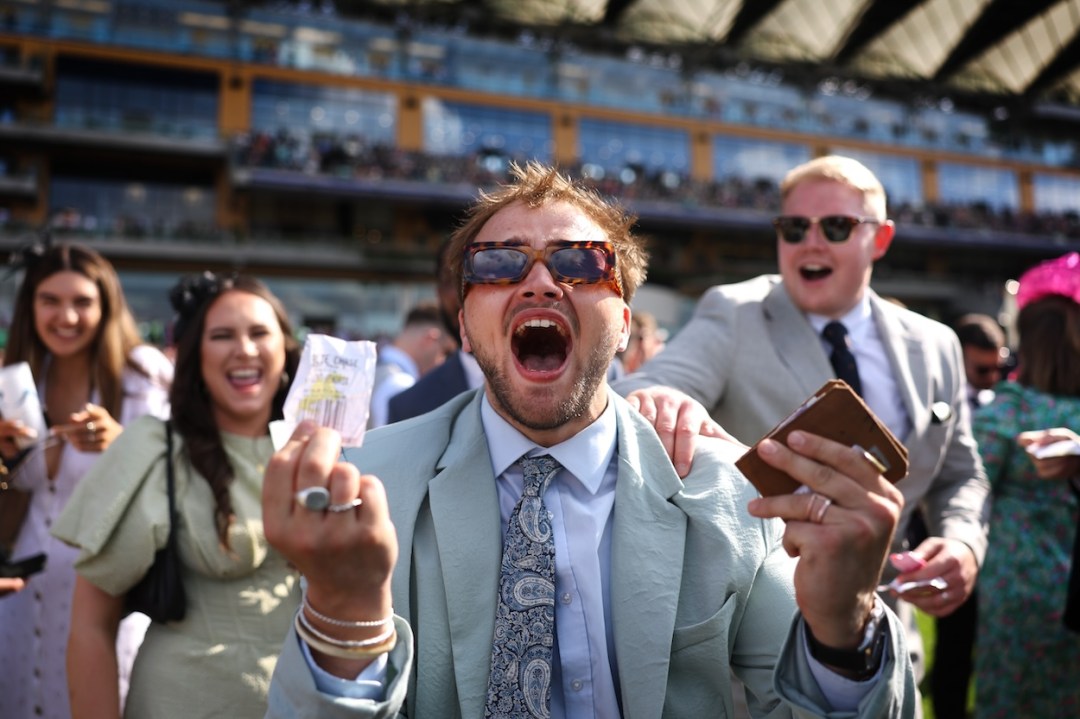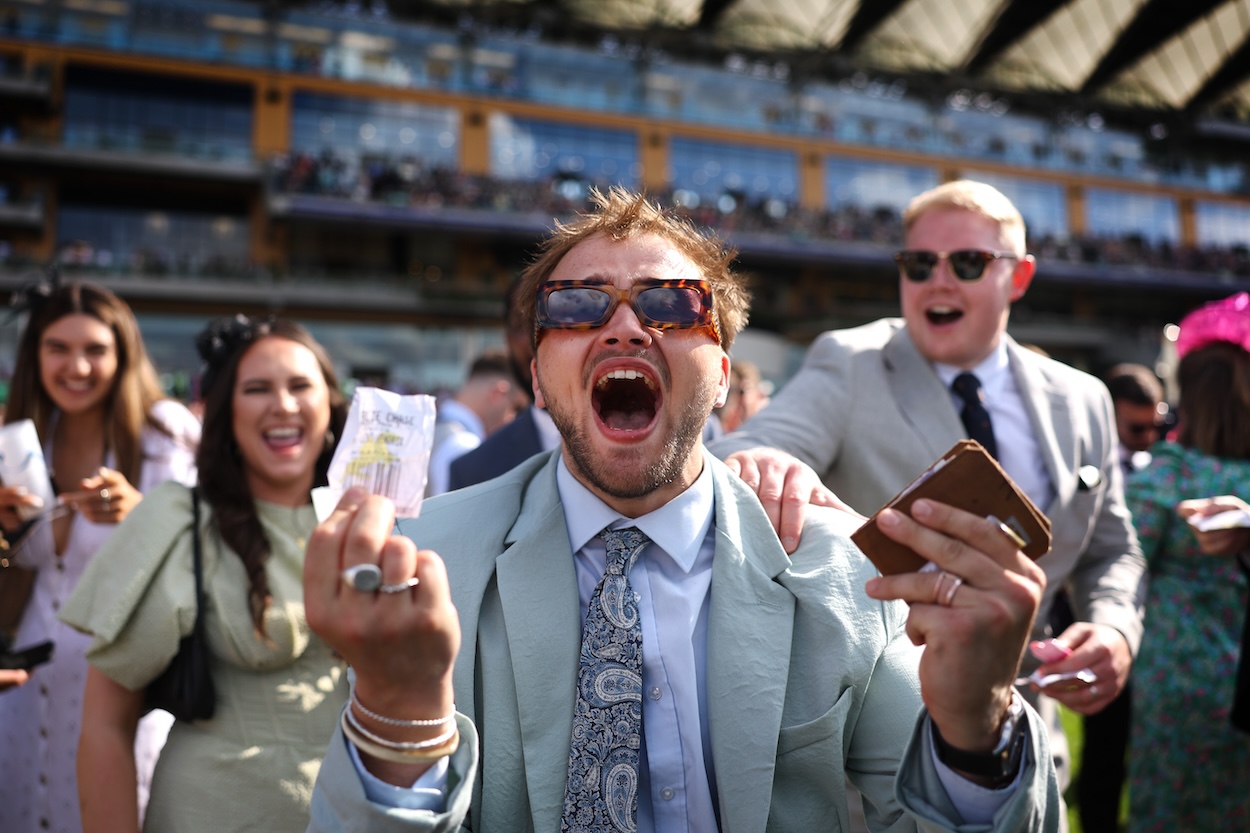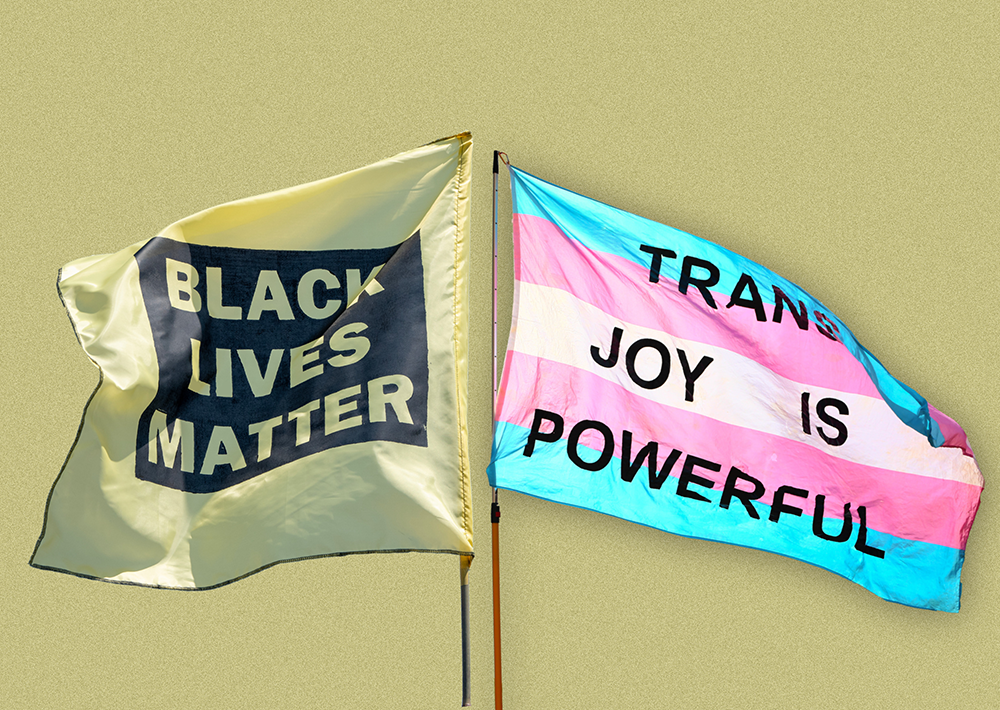Today, I go to Ascot. The last time I darkened the turf of the Royal Enclosure was in 2017, when I was heavily pregnant with my first daughter. In the photograph of my husband and me that day, I resemble a whale with a plate attached to its head, while my husband looks as if he might at any moment burst into flames from wearing tails and top hat in a heatwave. As you can imagine, we both look rather cross. Curiously, though, on the edge of the photo, there appears to be another couple posing for the camera who look to be having a brilliant time. The gentleman is wearing a cravat of some sort, no tails or topper, while his lady love sports a pink minidress.
Forget the Royal Enclosure, now so thoroughly middle-class and non-exclusive as to be considered a joke by true chins – the real party is in the Windsor Enclosure. Not that I’ve ever been invited, more’s the pity. There, for the price of £35, you will get the first view of the royal procession, enjoy live music and not be subjected to any official dress code, the subject of which will fill feature supplements in the broadsheets for this entire week. Horse and Hound carefully describes the Windsor Enclosure as ‘ideal for large groups’. Ideal, in other words, for a proper knees-up – which is what Ascot ought to be. Except it’s not. The Royal Ascot committee has engaged in aggressive commercialisation, with strict policing of enclosures using badges and QR codes by gatekeepers such as Felicity Barnard, formerly of West Ham and Arsenal management. Ascot is now an exercise in manicured social segregation led by the Middleton classes.
It doesn’t have to be like this. Horsey and racing circles have always been predicated on one of the great curiosities of English social life: snob and mob. S&M, as writer Ed West puts it, works on the horseshoe theory: ‘popular with the toffs at the top and the plebs at the bottom, with not much interest in between’. This social horseshoe is why, according to The Spectator’s agony aunt, Mary Killen, in horsey circles, ‘everyone is equal over and under the turf’. Other racing events such as Cheltenham combine snob and mob to spectacular effect, leading, as one chin quietly put it to me, to ‘a naff-cot strike’ in recent years. Of course, the upper classes still congregate at Ascot in the White’s or Cavalry & Guards tents and will always be seen braying away over a picnic in Car Park One, but true toffs prefer something a bit more bonkers and a lot more louche.
Horsey and racing circles have always been predicated on one of the great curiosities of English social life: snob and mob
Other examples of social horseshoe institutions that work on the snob and mob theory are the Army, where officers and squaddies have always socialised uproariously together, and shooting, where the guns and the beaters are blissfully happy in each other’s company between drives. Maybe snob and mob works best in the country, far away from liberal urban agglomerations that flatten the bend out of all recognition. And, in some ways, we can see the wild and relentless success of Clarkson’s Farm as the upper-lower class union at its best. While I’m not suggesting that Jeremy Clarkson is an aristocrat, there is some horseshoe class magic at work between his relationship with Kaleb and Gerald, both so removed from each other socially as to find the whole thing hilarious. and exchange insults lovingly.
Outside of the social calendar, I notice snob and mob uniting in all sorts of different and subtle ways in everyday life: the love of dogs and their filth, the preference for instant coffee (not a drop of oat milk in sight), the large number of children, the blissfully tolerant attitude to smoking indoors, the shared love of tattoos (see Queen Vic); I could go on. Forget Freud’s narcissism of small differences, this is the happy clarity of large differences: upper and lower classes can act in the same way because there is no danger of either being mistaken. Politically, snob and mob may also account for why the lower classes regard Boris Johnson and, to some extent, Jacob Rees-Mogg as one of their own.
But for now, back to Ascot. I’ll be there in a few hours, looking wistfully on at the brilliantly bonkers, hedonistic, alive punters in the Windsor Enclosure and vowing – as I always do – never to go into the Royal Enclosure ever again. Maybe there’s a boxing match I could go to next year instead. Far more my scene.








Comments